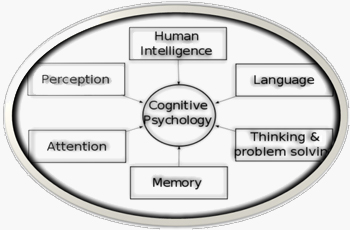




Cognitive tests

According to the development in Psychology area, an Intelligence Quotient scores are used in many contexts:
As predictors of educational achievement or special needs, by social scientists who study the distribution
Of IQ scores in populations and relationships between IQ scores and other variables, and as predictors of job performance and other income.
Raymond Cattell (1941) was proposed two types of cognitive abilities in a revision of spearman’s concept
Of general Intelligence. Fluid Intelligence (Gf) was hypothesized as the ability to solve novel problems by using and reasoning and crystallized intelligence (Gc) was hypothesized as a
knowledge-based ability that was very dependent on education and experience.
Recent IQ tests are greatly influenced by the Cattell-Horn-Carroll theory(1999). Under g there are 10 broad abilities:
- Fluid Intelligence (Gf): includes the broad ability to reason, form concepts, and solve problems using unfamiliar information or novel procedures.
- Crystallized Intelligence (Gc): includes the breadth and depth of a person's acquired knowledge, the ability to communicate one's knowledge, and the ability to reason using previously learned experiences or procedures.
- Quantitative Reasoning (Gq): the ability to comprehend quantitative concepts and relationships and to manipulate numerical symbols.
- Reading & Writing Ability (Grw): includes basic reading and writing skills.
- Short-Term Memory (Gsm): is the ability to apprehend and hold information in immediate awareness and then use it within a few seconds.
- Long-Term Storage and Retrieval (Glr): is the ability to store information and fluently retrieve it later in the process of thinking.
- Visual Processing (Gv): is the ability to perceive, analyze, synthesize, and think with visual patterns, including the ability to store and recall visual representations.
- Auditory Processing (Ga): is the ability to analyze, synthesize, and discriminate auditory stimuli, including the ability to process and discriminate speech sounds that may be presented under distorted conditions.
- Processing Speed (Gs): is the ability to perform automatic cognitive tasks, particularly when measured under pressure to maintain focused attention.
- Decision/Reaction Time/Speed (Gt): reflect the immediacy with which an individual can react to stimuli or a task (typically measured in seconds or fractions of seconds; not to be confused with Gs, which typically is measured in intervals of 2–3 minutes).
In human being the personality is more influenced in many things.
How is Personality Measured

“The particular pattern of behavior and thinking that prevails across time and contexts, and differentiates one person from another.”
In trying to understand these behavior patterns, psychologists attempt to identify and measure individual personality characteristics, often called personality traits.
A personality trait is assumed to be some enduring characteristic that is relatively constant. This is opposed to the present temperament of that person which is not necessarily a stable characteristic. Consequently, trait theories are specifically focused on explaining the more permanent personality characteristics that differentiate one individual from another. For example, things like being; dependable, trustworthy, friendly, cheerful, etc.
Modern personality theory is a relatively new field and really began in the 1920’s. There have been many attempts to define personality traits and some psychologists have developed models with hundreds of traits. Whilst others believe that there are as few as three. In 1990, the psychologists Costa & McCrae published details of a '5 trait' model. This has received significant support from other research and is now widely accepted among psychologists. These 5 aspects of personality are referred to as the 5-factors or sometimes just ‘the Big 5’.
Each of these 5 personality traits describes, relative to other people, the frequency or intensity of a person's feelings, thoughts, or behaviors. Everyone possesses all 5 of these traits to a greater or lesser degree. For example, two individuals could be described as ‘agreeable’ (agreeable people value getting along with others). But there could be significant variation in the degree to which they are both agreeable.
These 5 traits/factors are:
- Extraversion - How “energetic” one is
- Agreeableness - One’s level of orientation towards other people
- Conscientiousness - How “structured” one is
- Neuroticism - Tendency to worry
- Openness to Experience - Tendency to be speculative and imaginative
People who score high on this factor like to work in cooperation with others, are talkative, enthusiastic and seek excitement. People who score low on this factor prefer to work alone, and can be perceived as cold, difficult to understand, even a bit eccentric.
Those who score high on this factor are usually co-operative, can be submissive, and are concerned with the well-being of others. People who score low on this factor may be challenging, competitive, sometimes even argumentative.
People who score high on this factor are usually productive and disciplined and “single tasking”. People who score low on this factor are often less structured, less productive, but can be more flexible, inventive, and capable of multitasking.
People who score low on this factor are usually calm, relaxed and rational. They may sometimes be perceived as lazy and incapable of taking things seriously. People who score high on this factor are alert, anxious, sometimes worried.
People who score high on this factor are neophile and curious and sometimes unrealistic. People who score low on this factor are down-to-earth and practical and sometimes obstructive of change.
| Personality Factor | Facts |
|---|---|
| Extraversion | Friendliness, Gregariousness, Assertiveness, Activity Level, Excitement-Seeking, Cheerfulness |
| Agreeableness | Trust, Morality, Altruism, Cooperation, Modesty, Sympathy |
| Conscientiousness | Self-Efficacy, Orderliness, Dutifulness, Achievement-Striving, Self-Discipline, Cautiousness |
| Neuroticism | Anxiety, Anger, Depression, Self-Consciousness, Immoderation, Vulnerability |
| Openness to experience | Imagination, Artistic Interests, Emotionality, Adventurousness, Intellect, Liberalism |
When thinking about personality traits it is important to ignore the positive or negative associations that these words have in everyday language. For example, Agreeableness is obviously advantageous for achieving and maintaining popularity. Agreeable people are better liked than disagreeable people. On the other hand, agreeableness is not useful in situations that require tough or totally objective decisions. Disagreeable people can make excellent scientists, critics, or soldiers.




